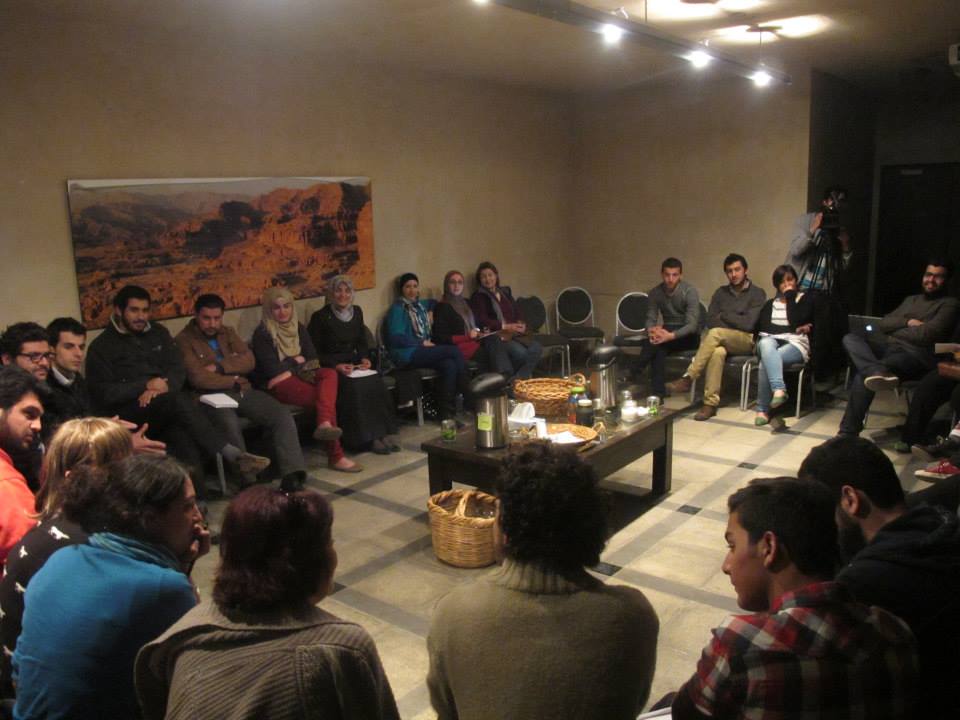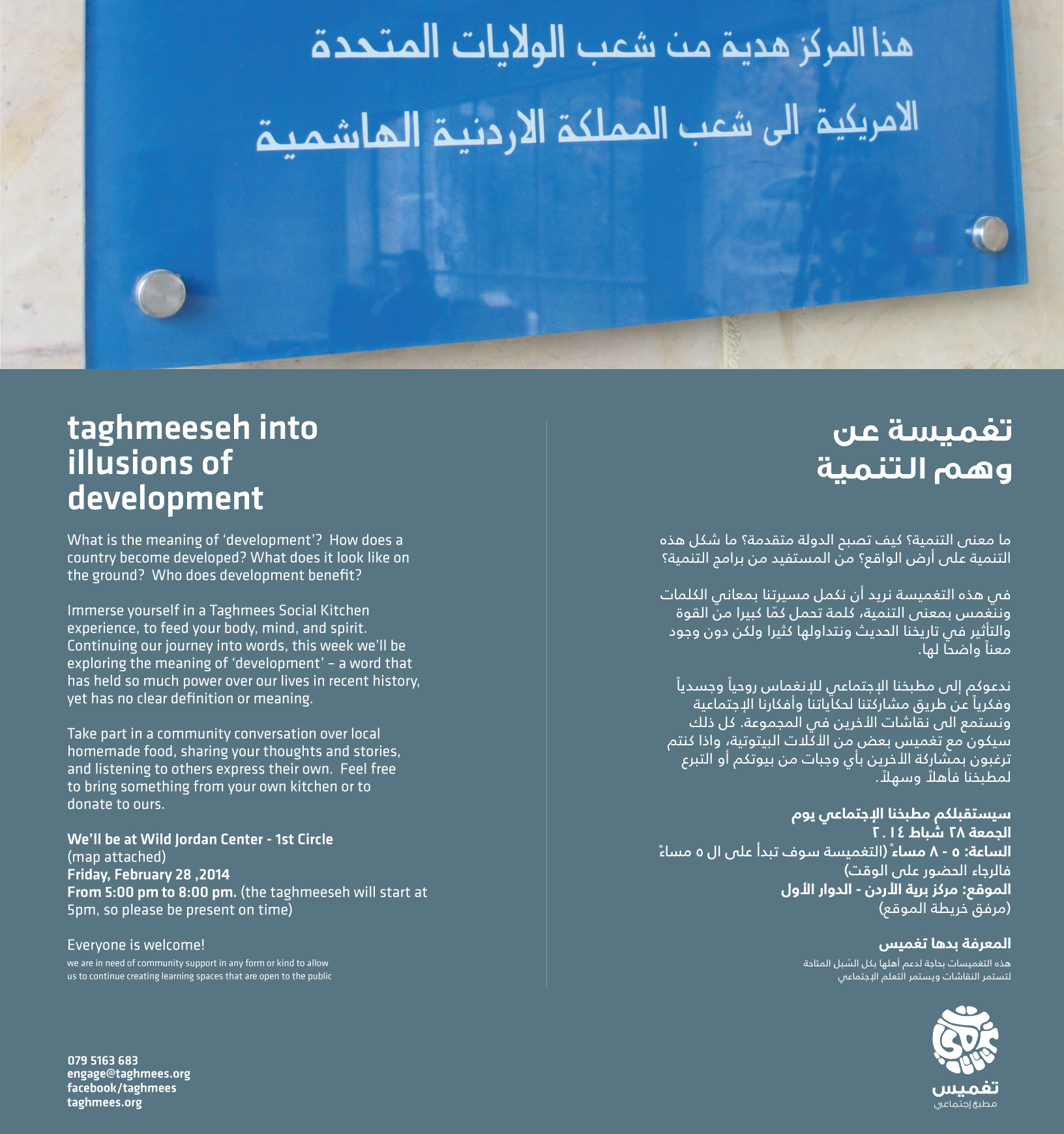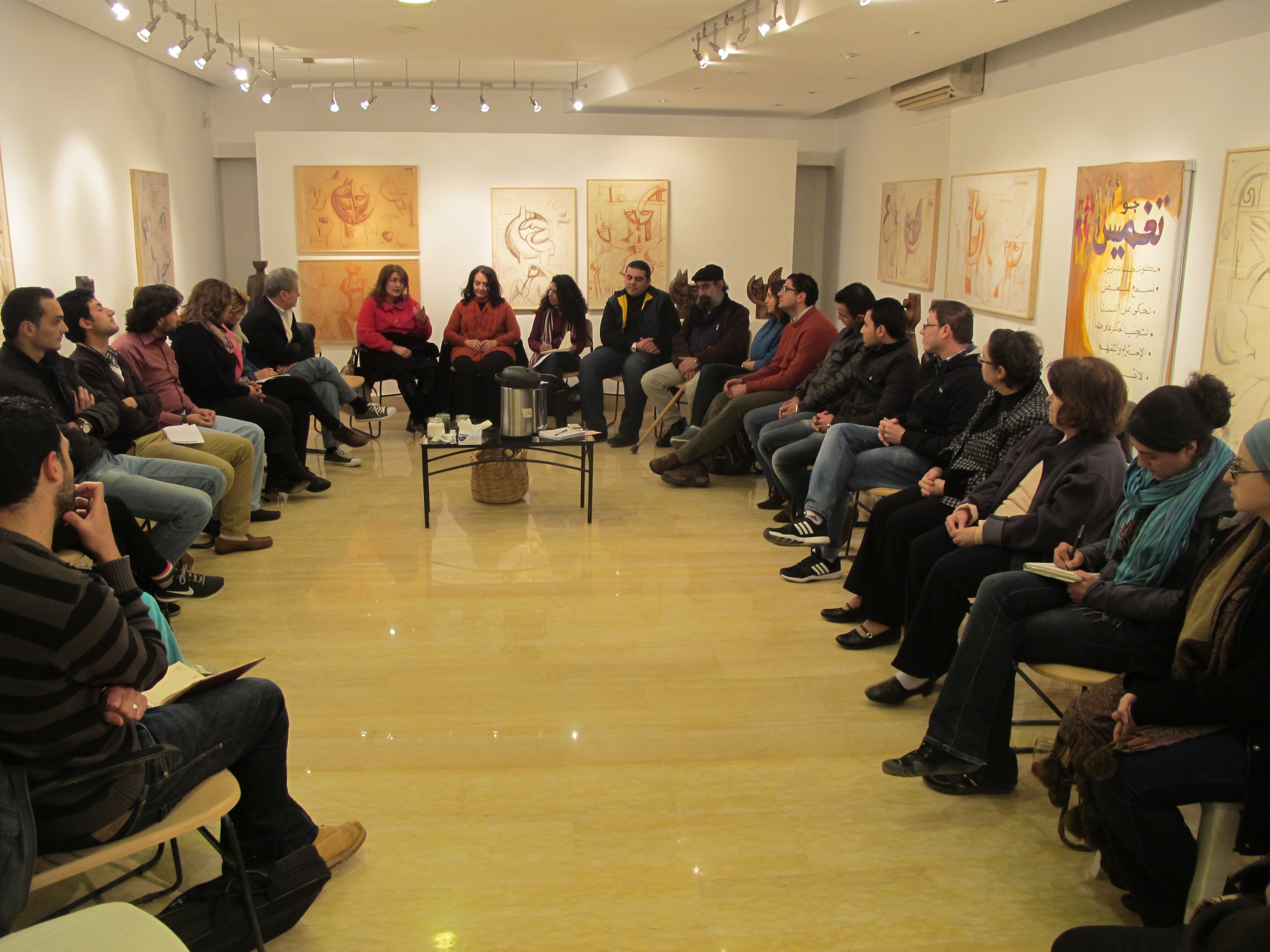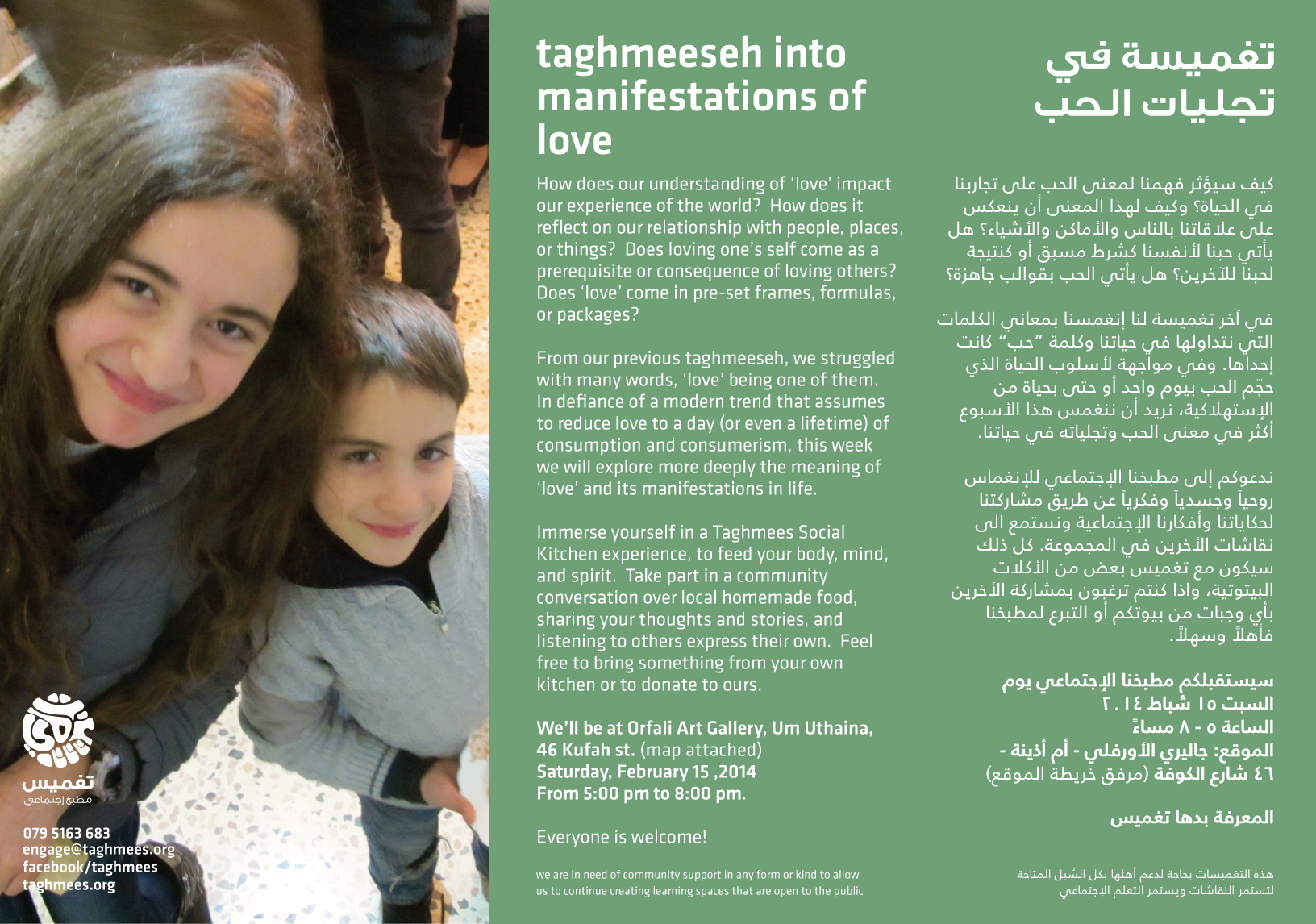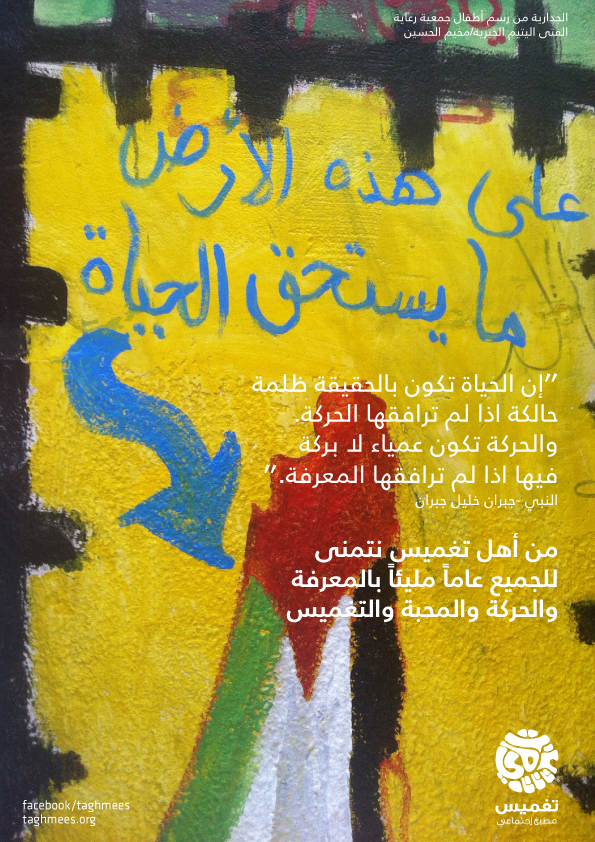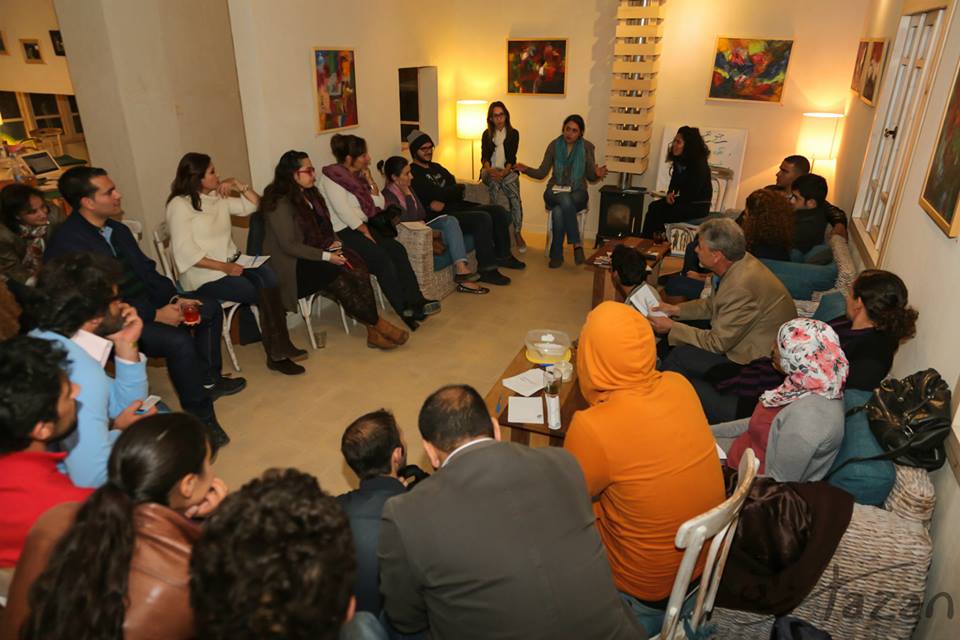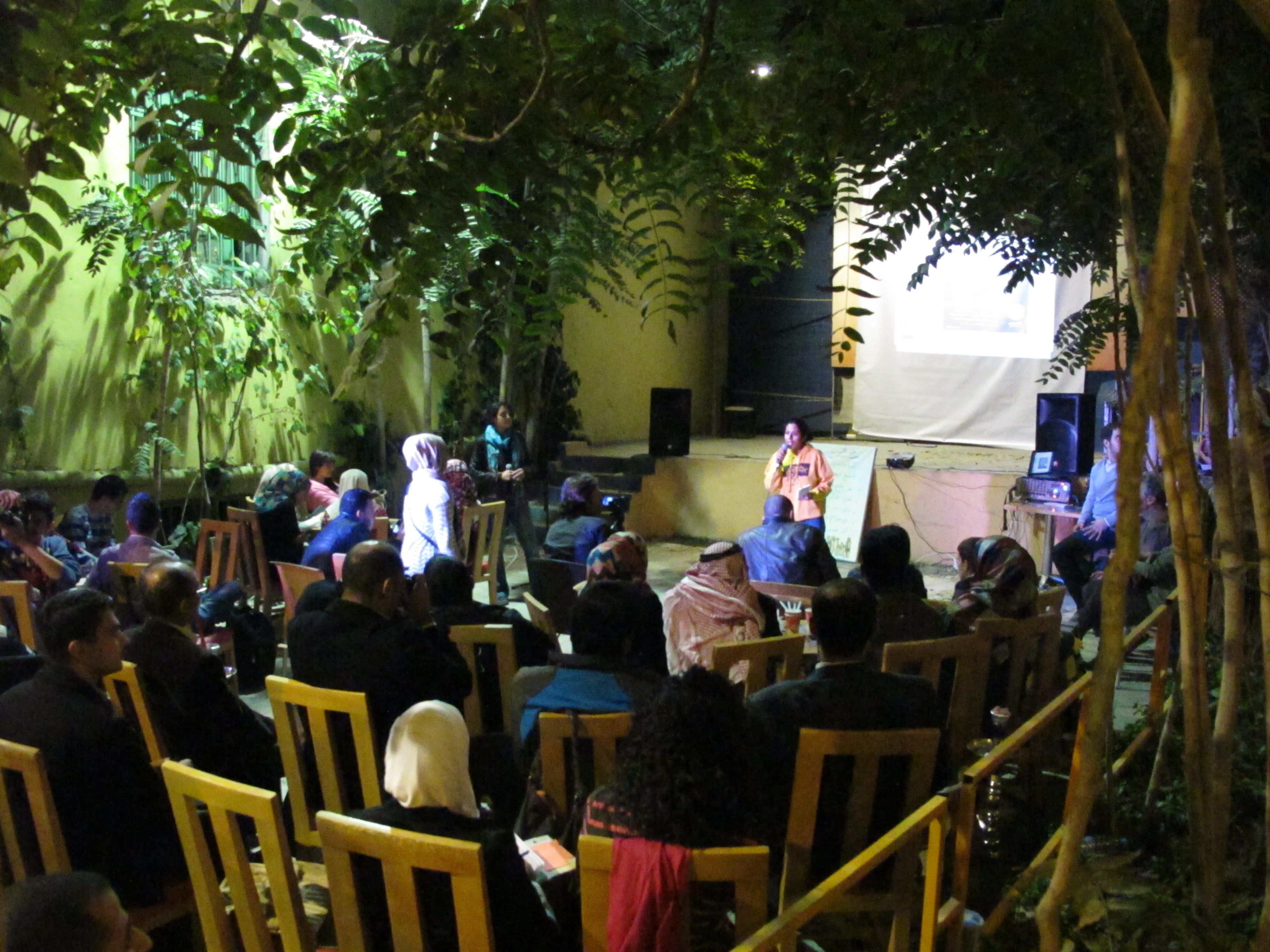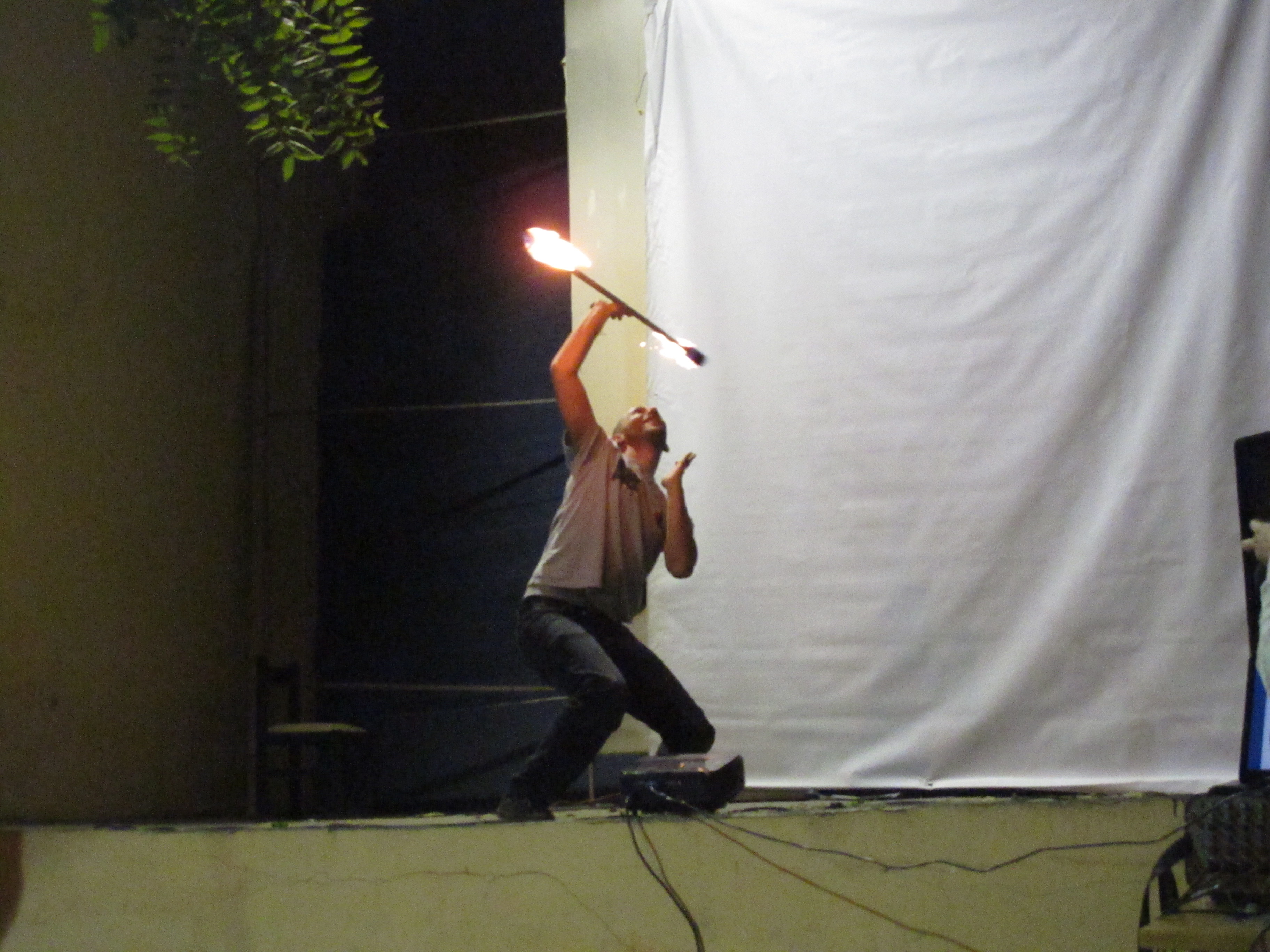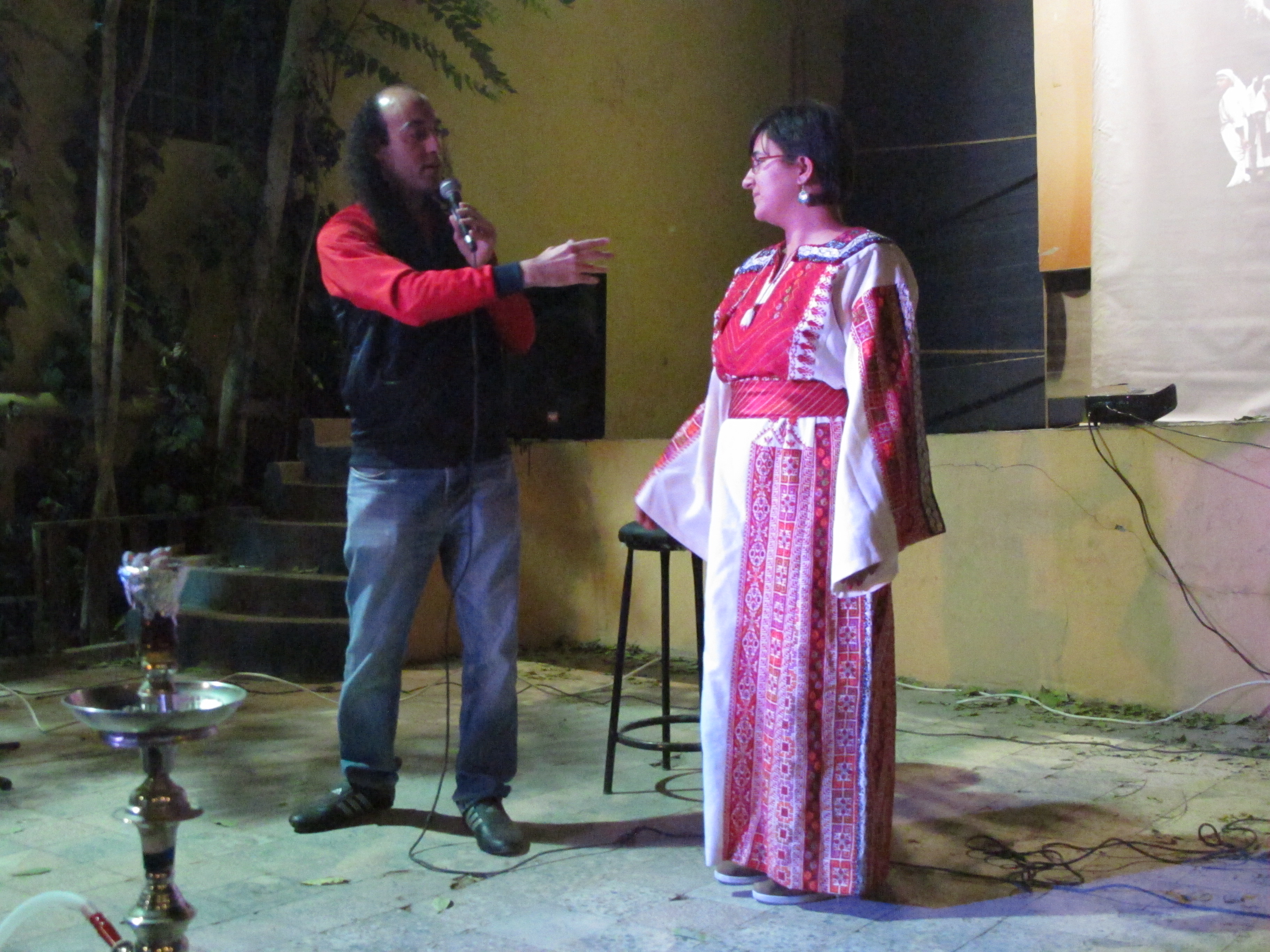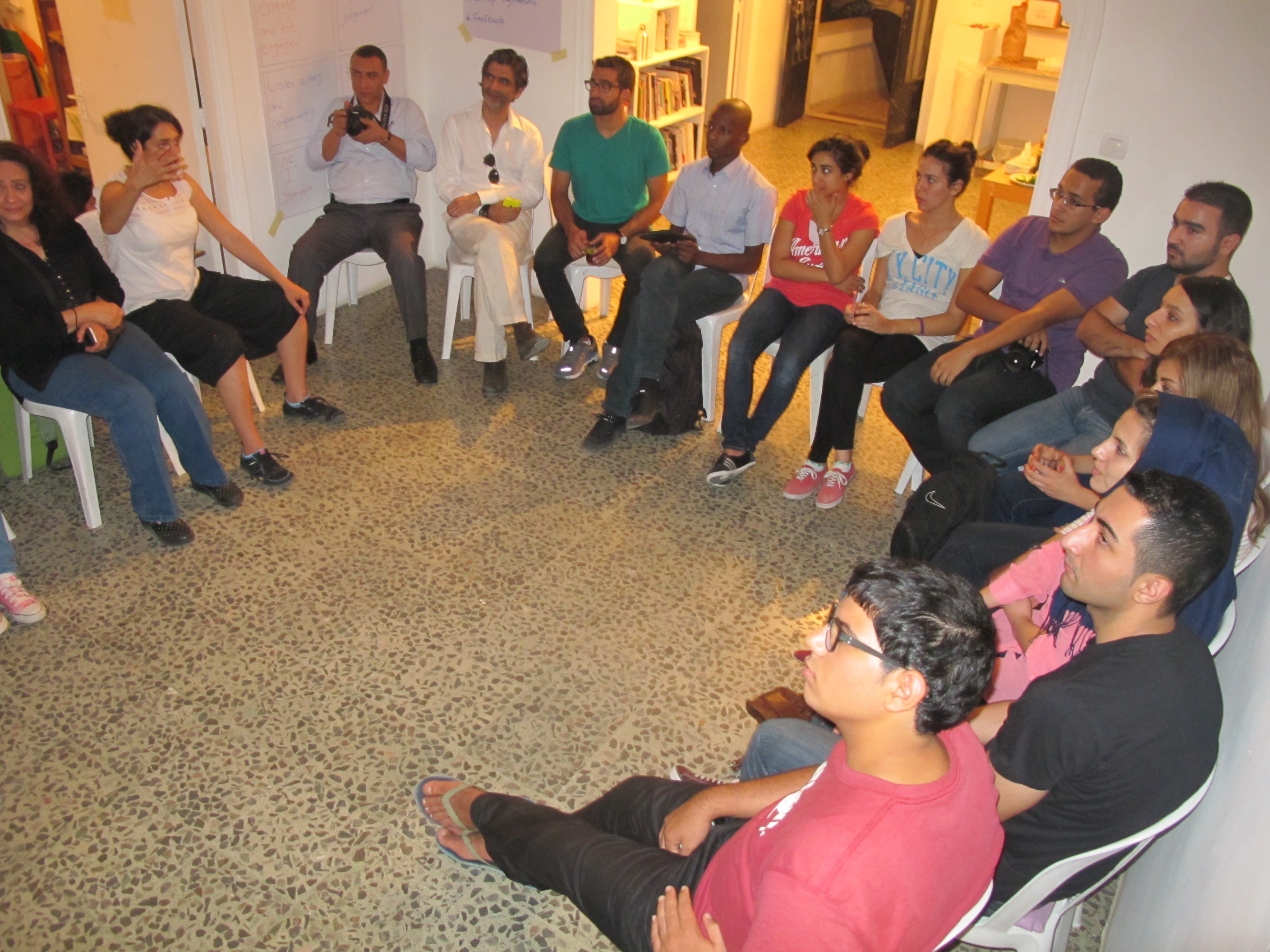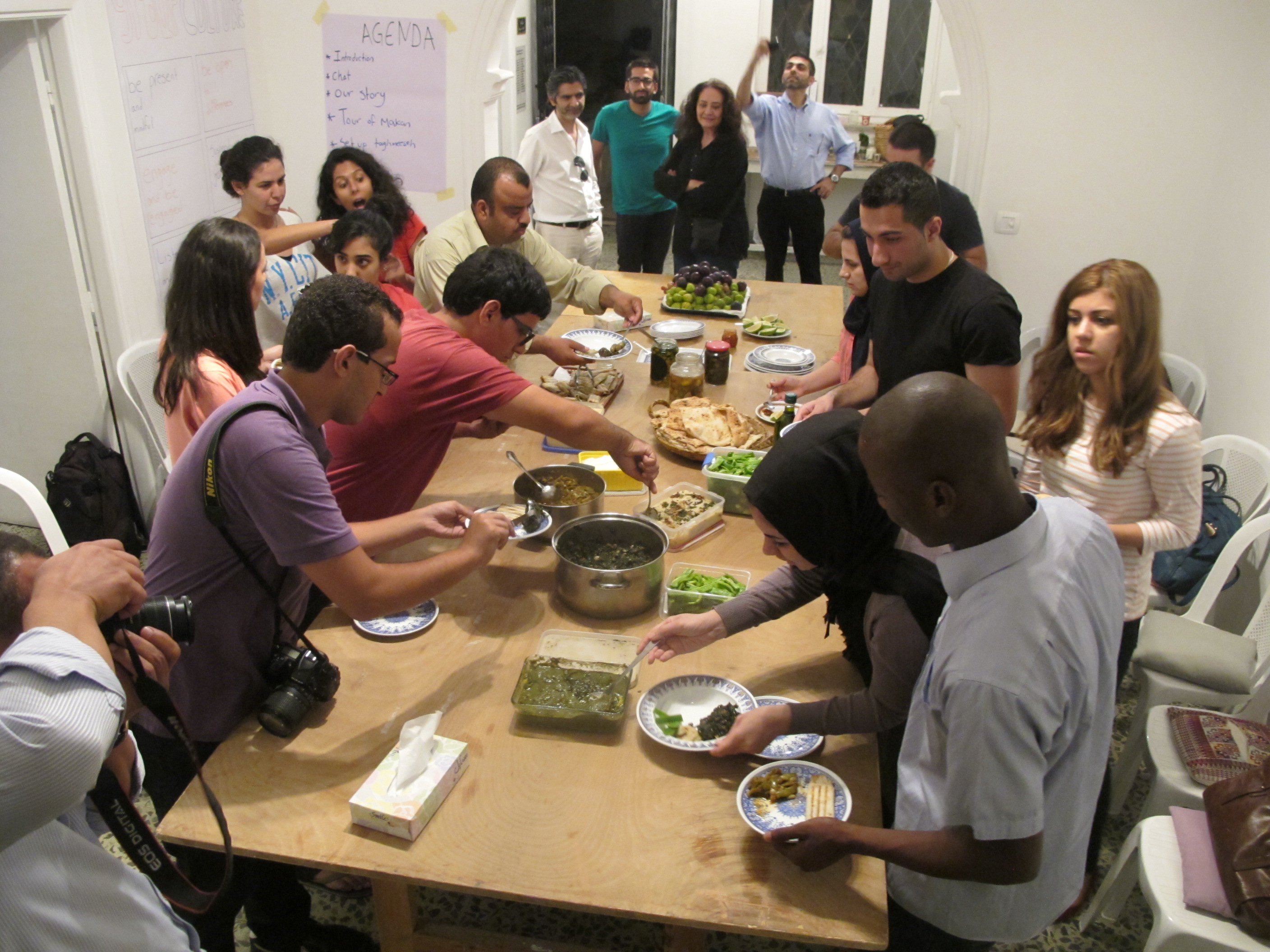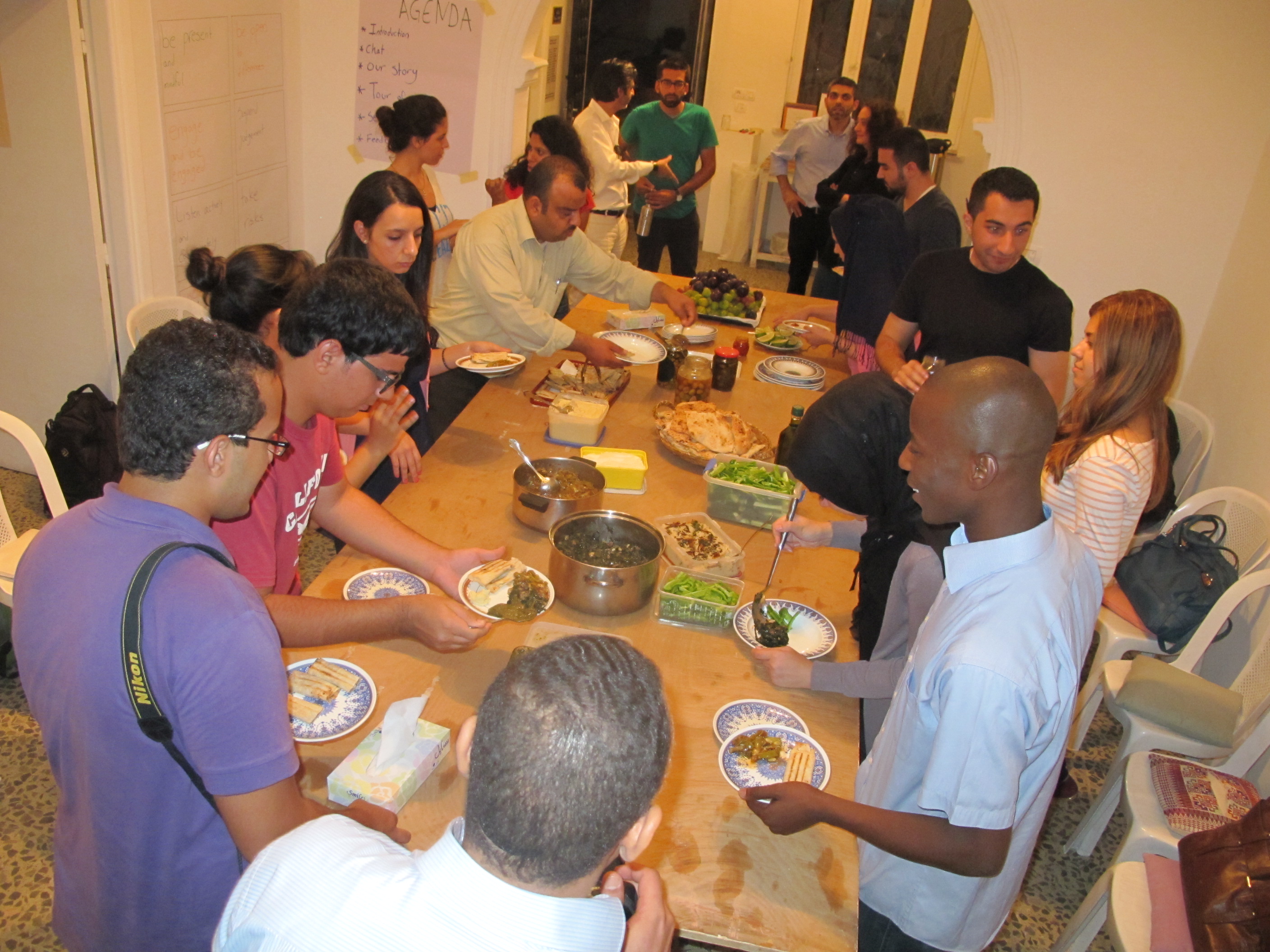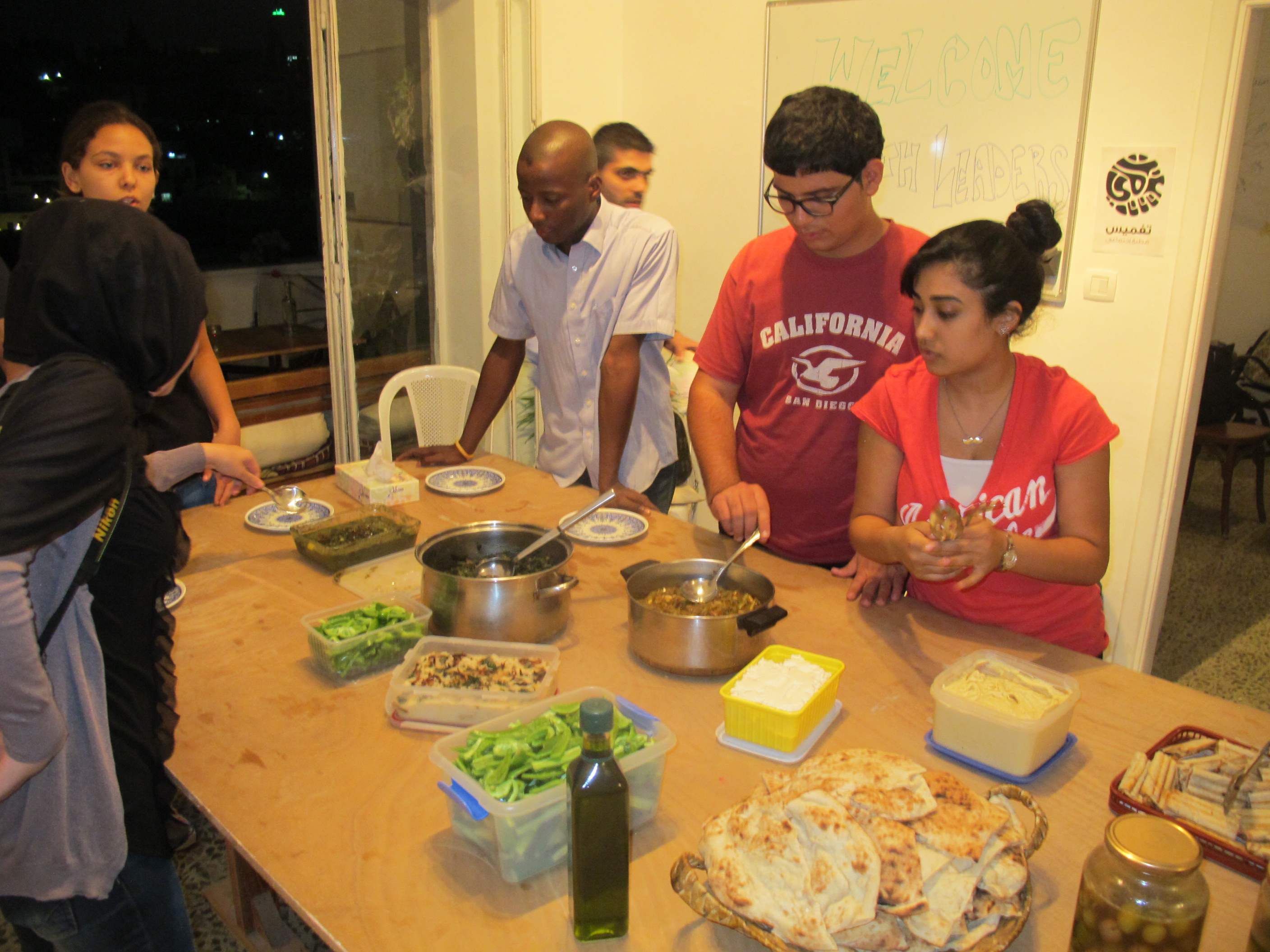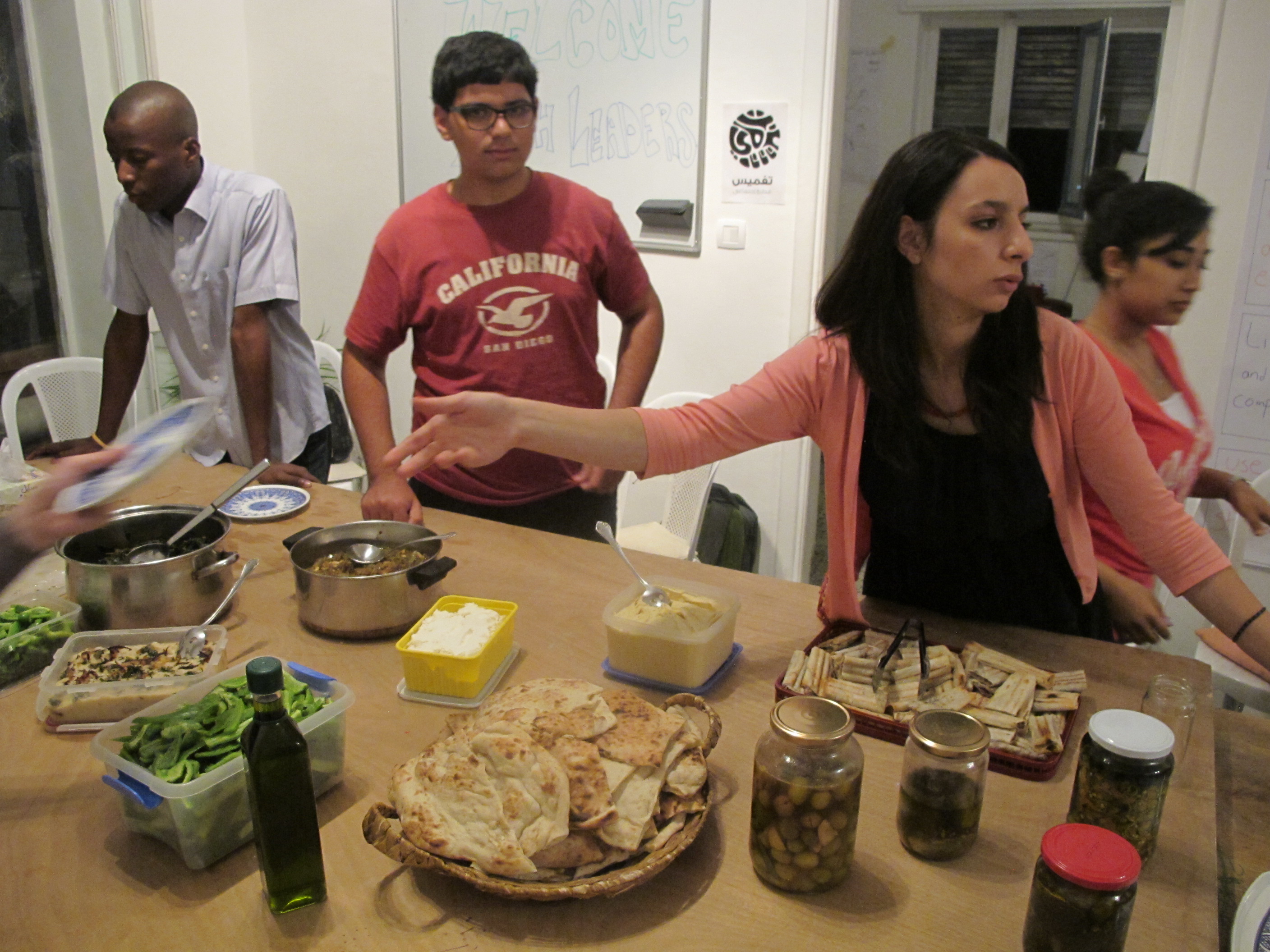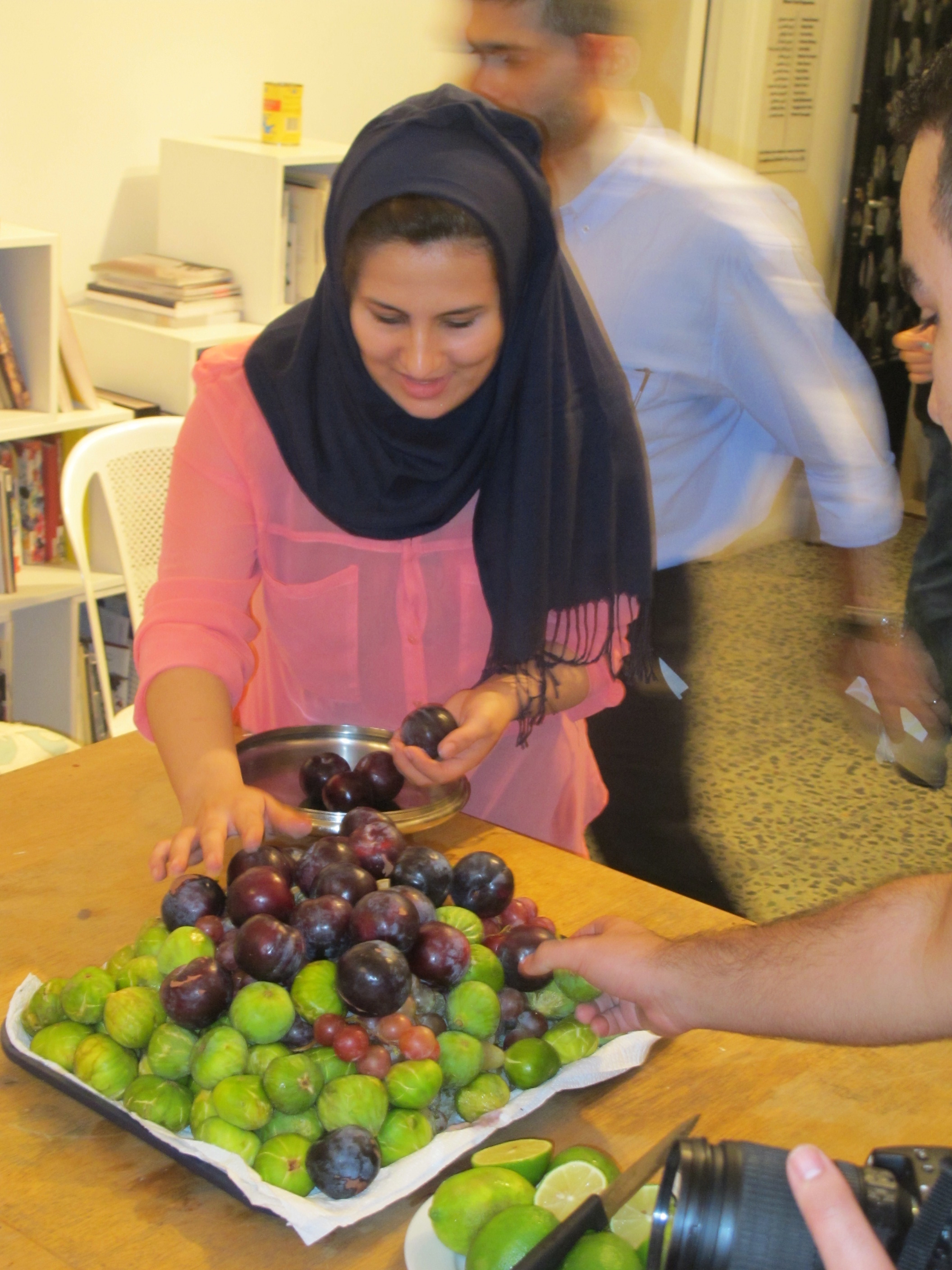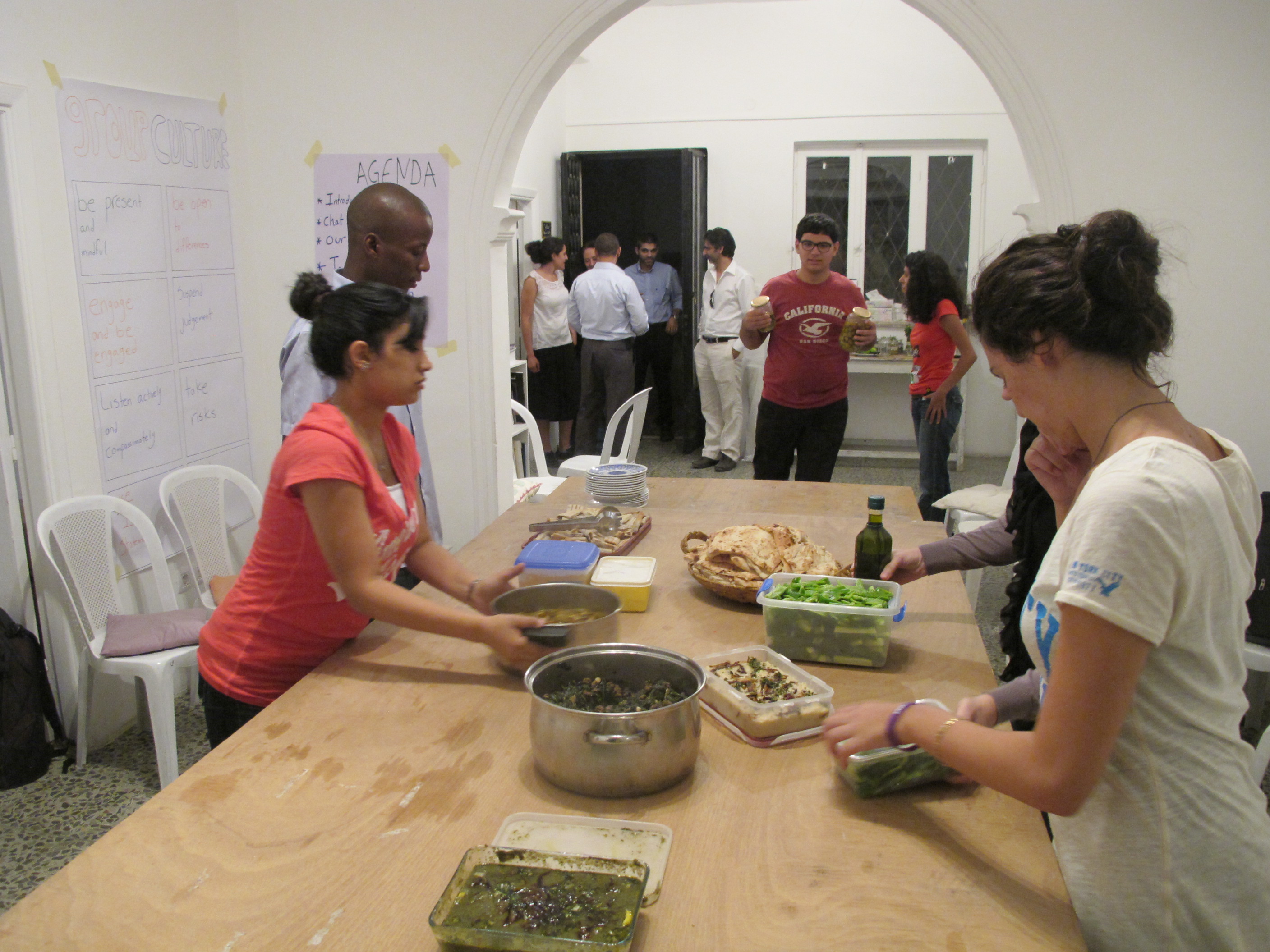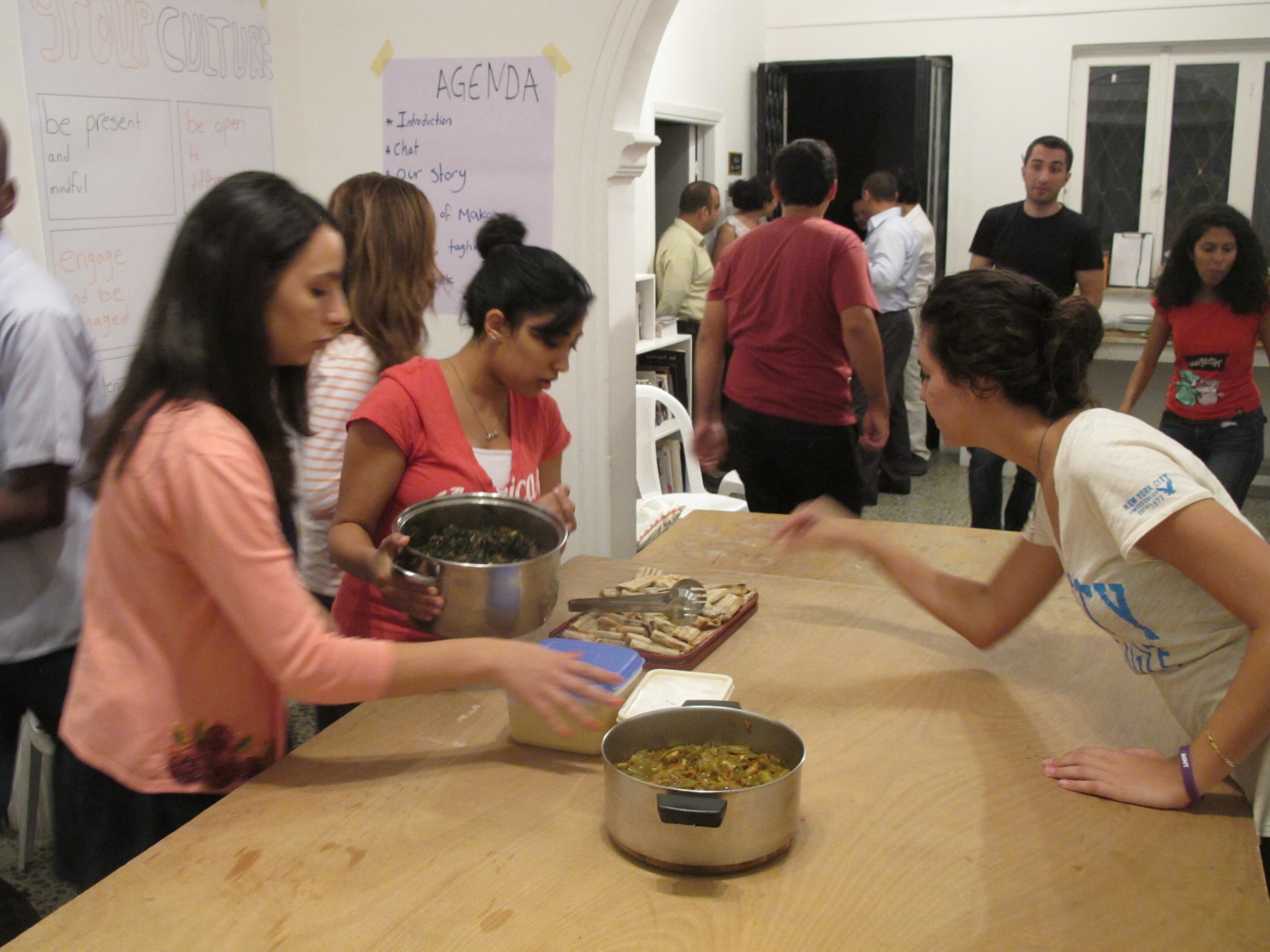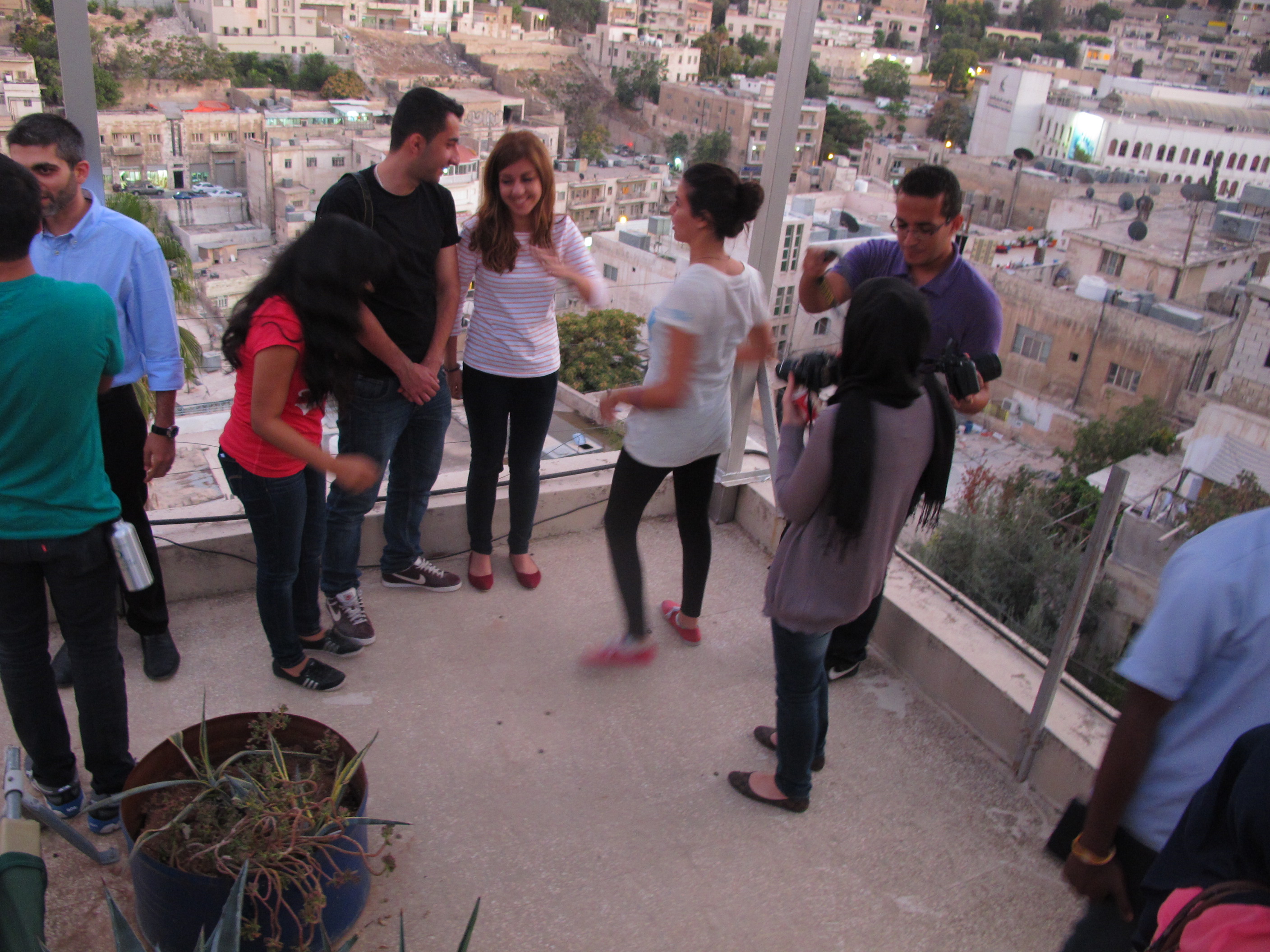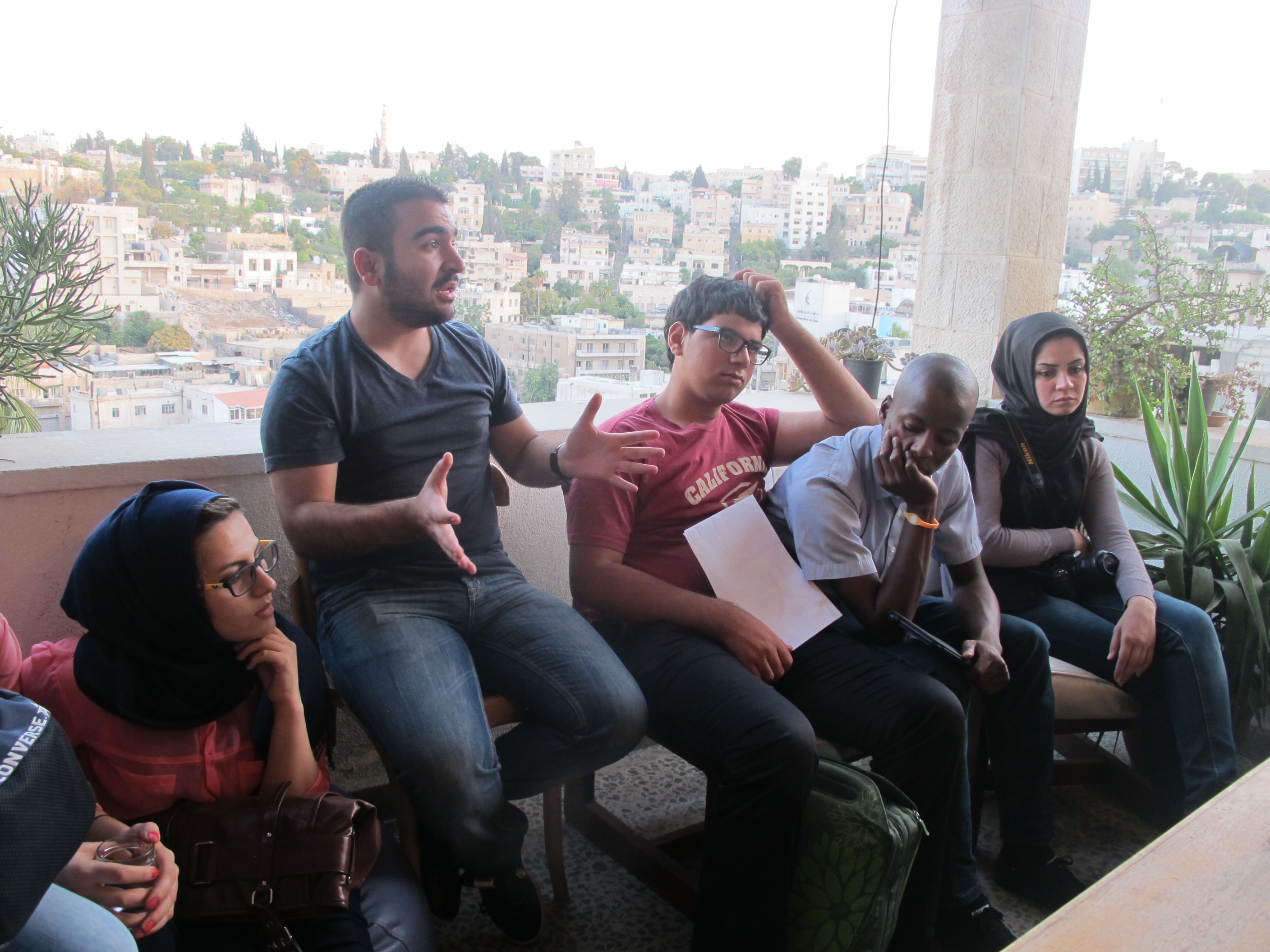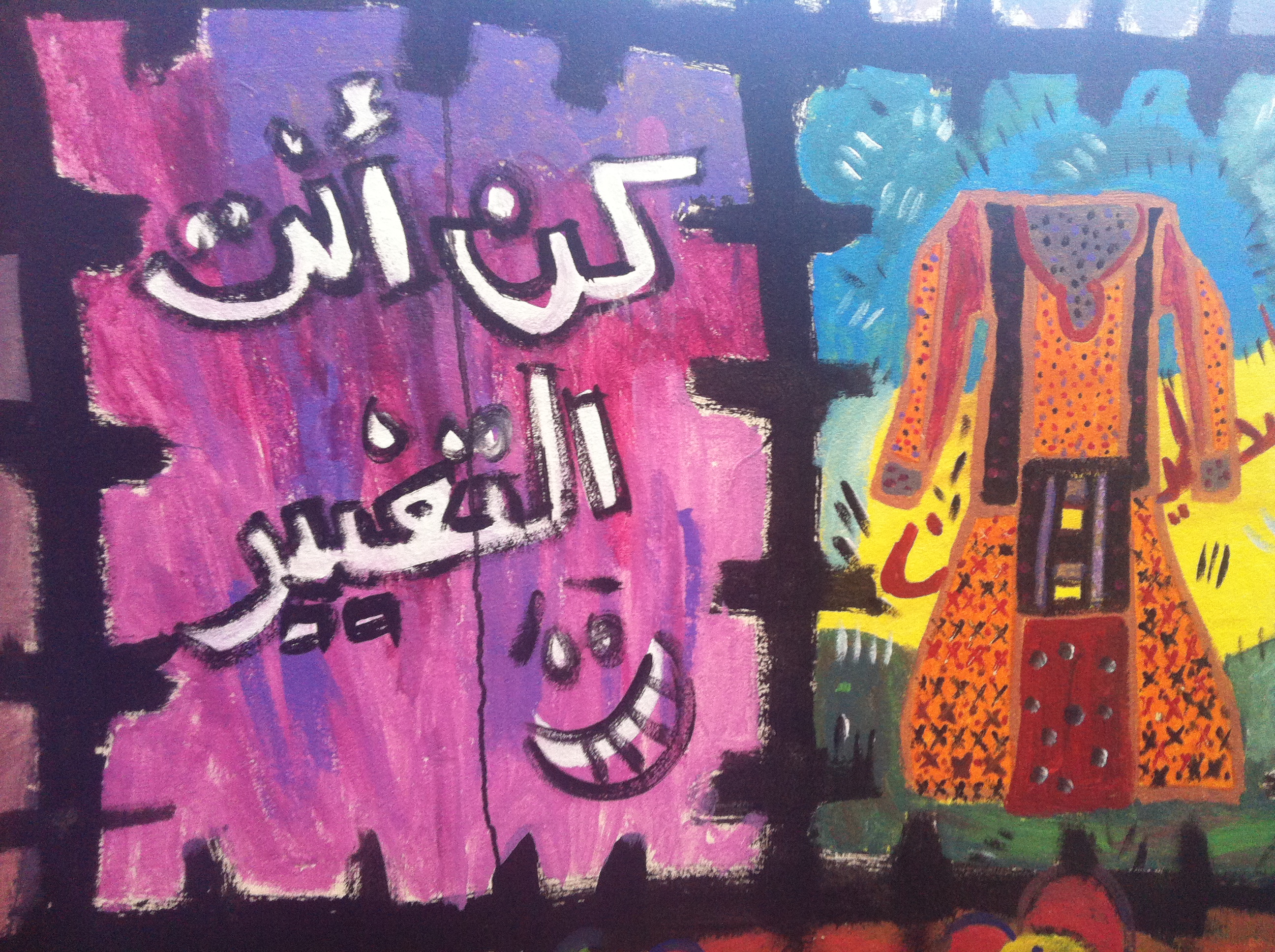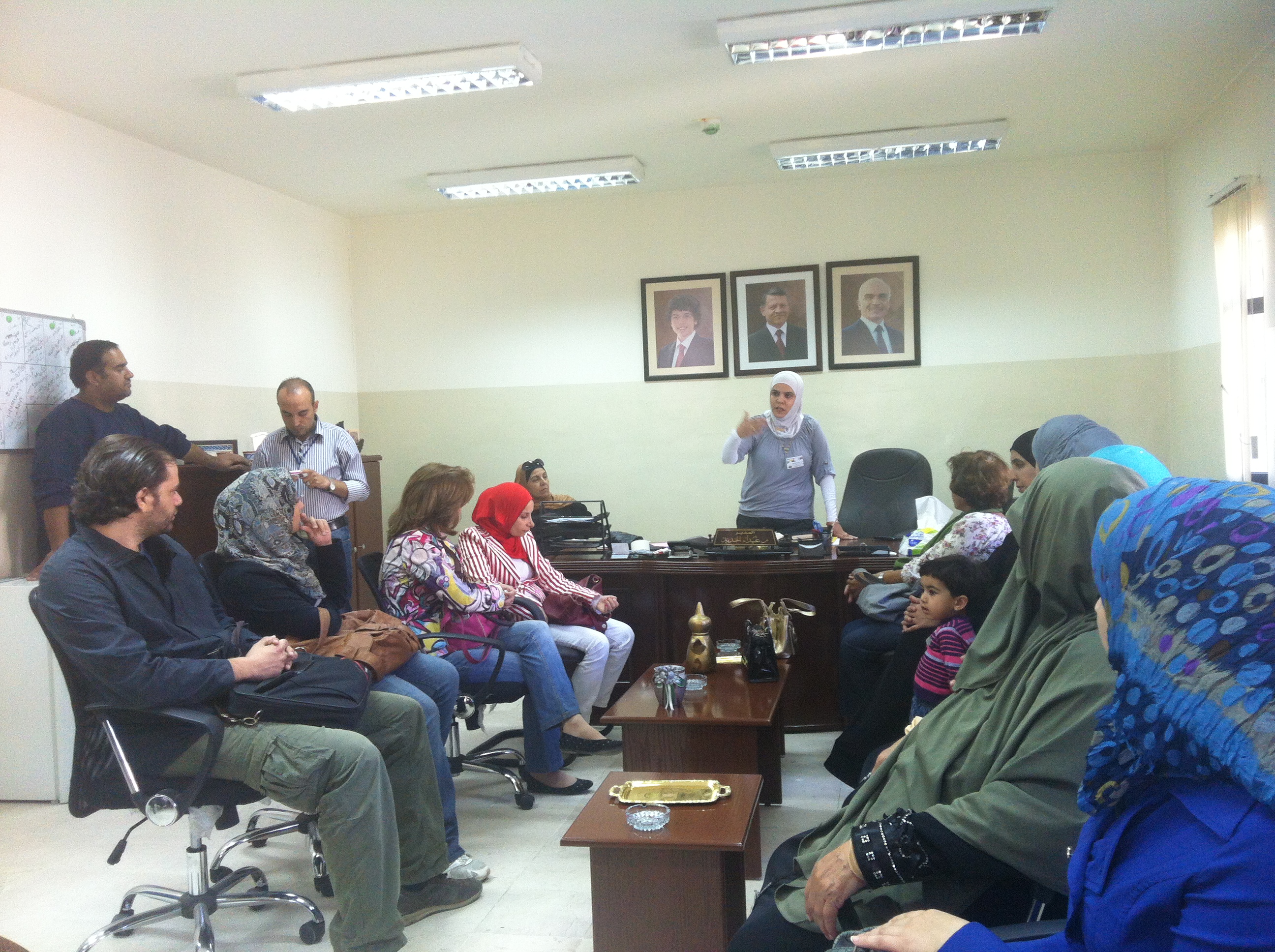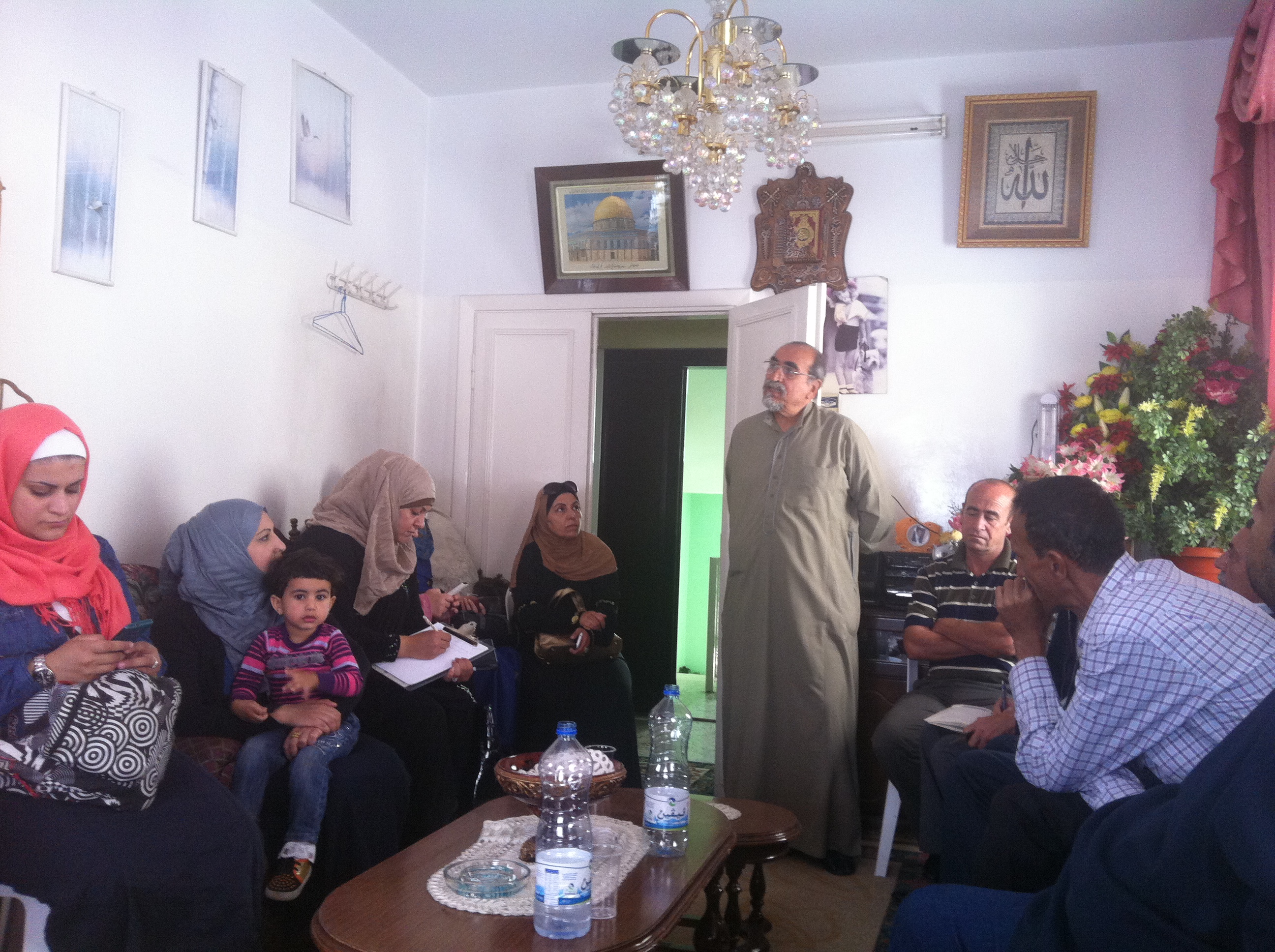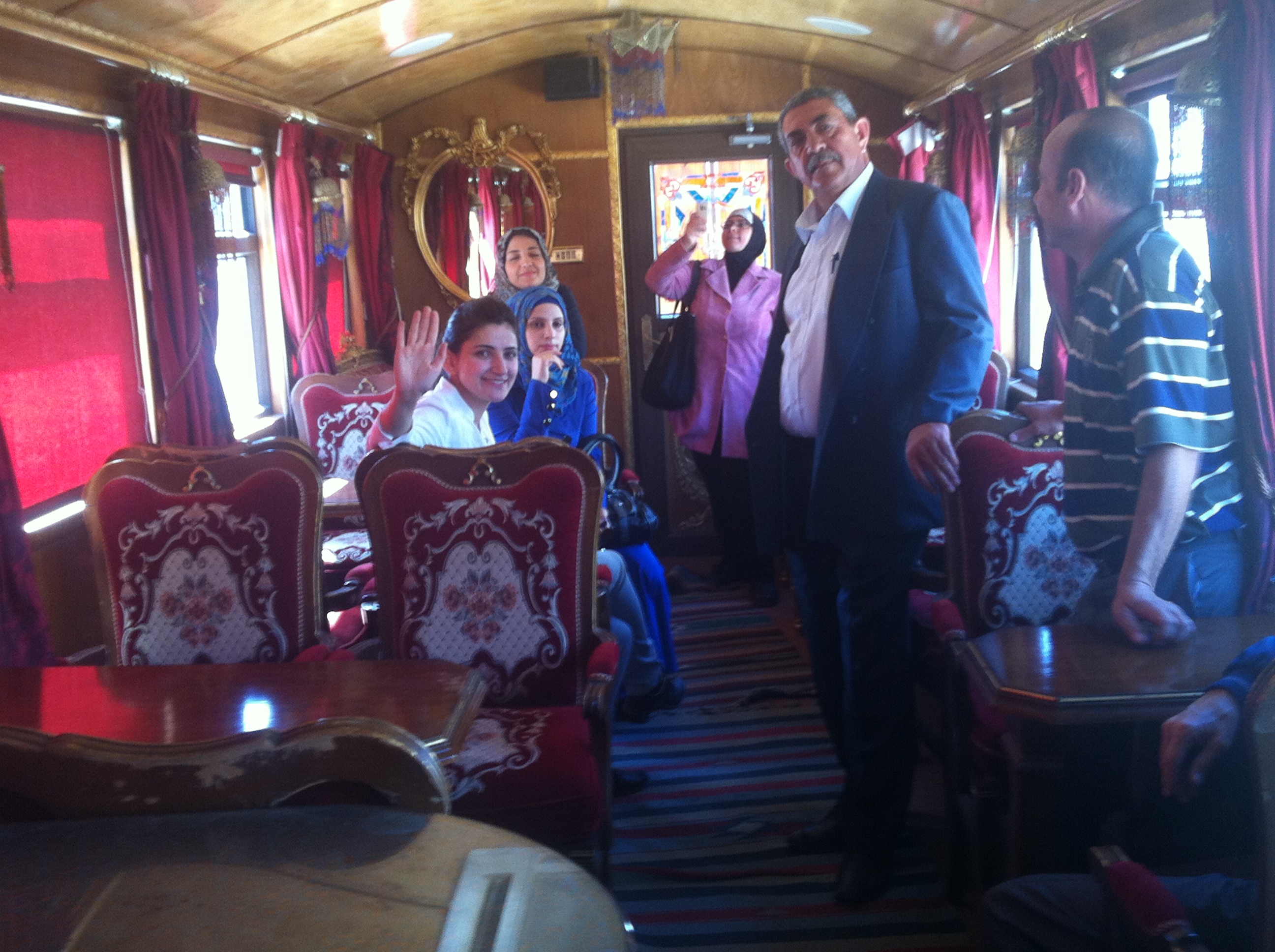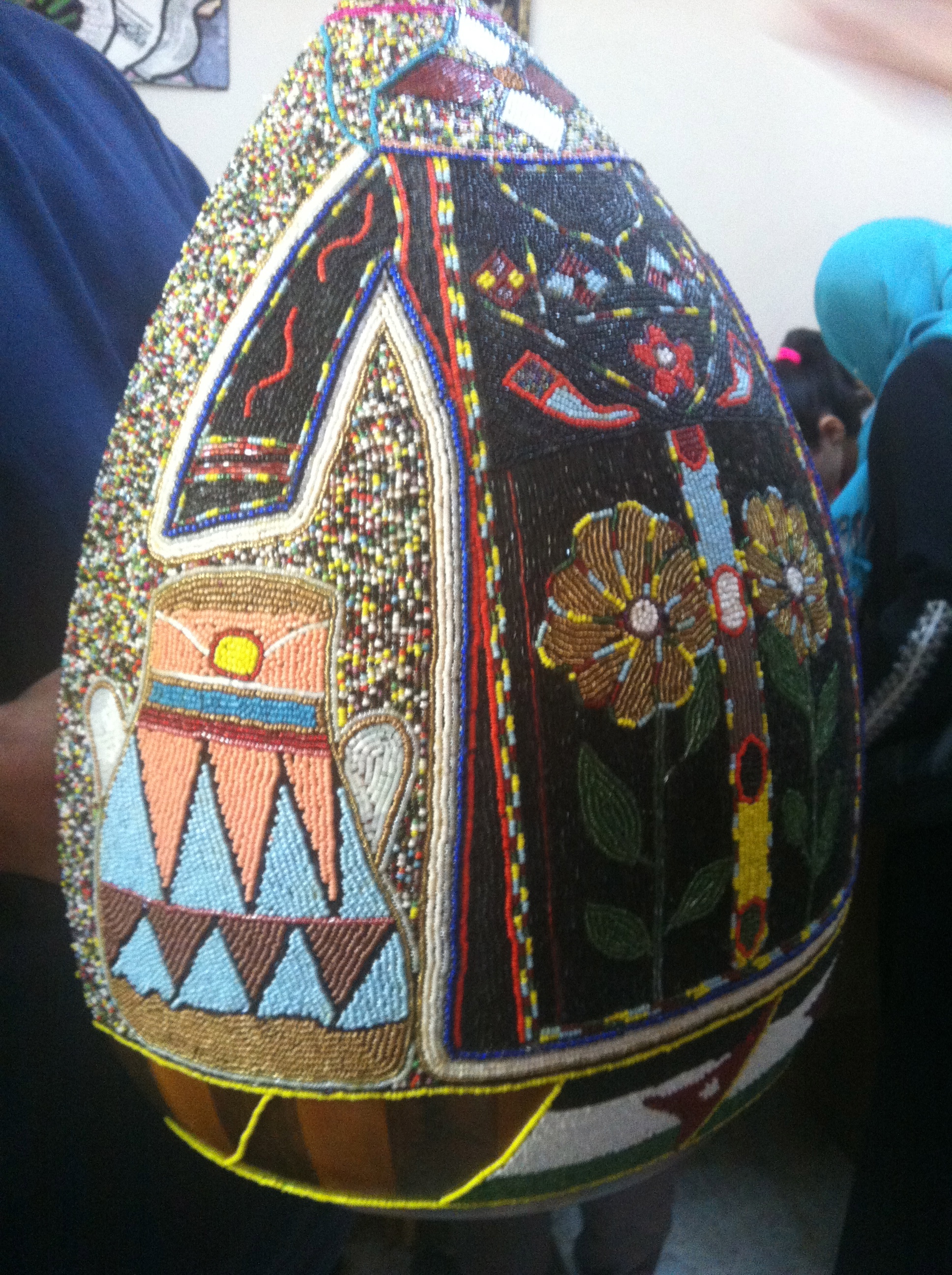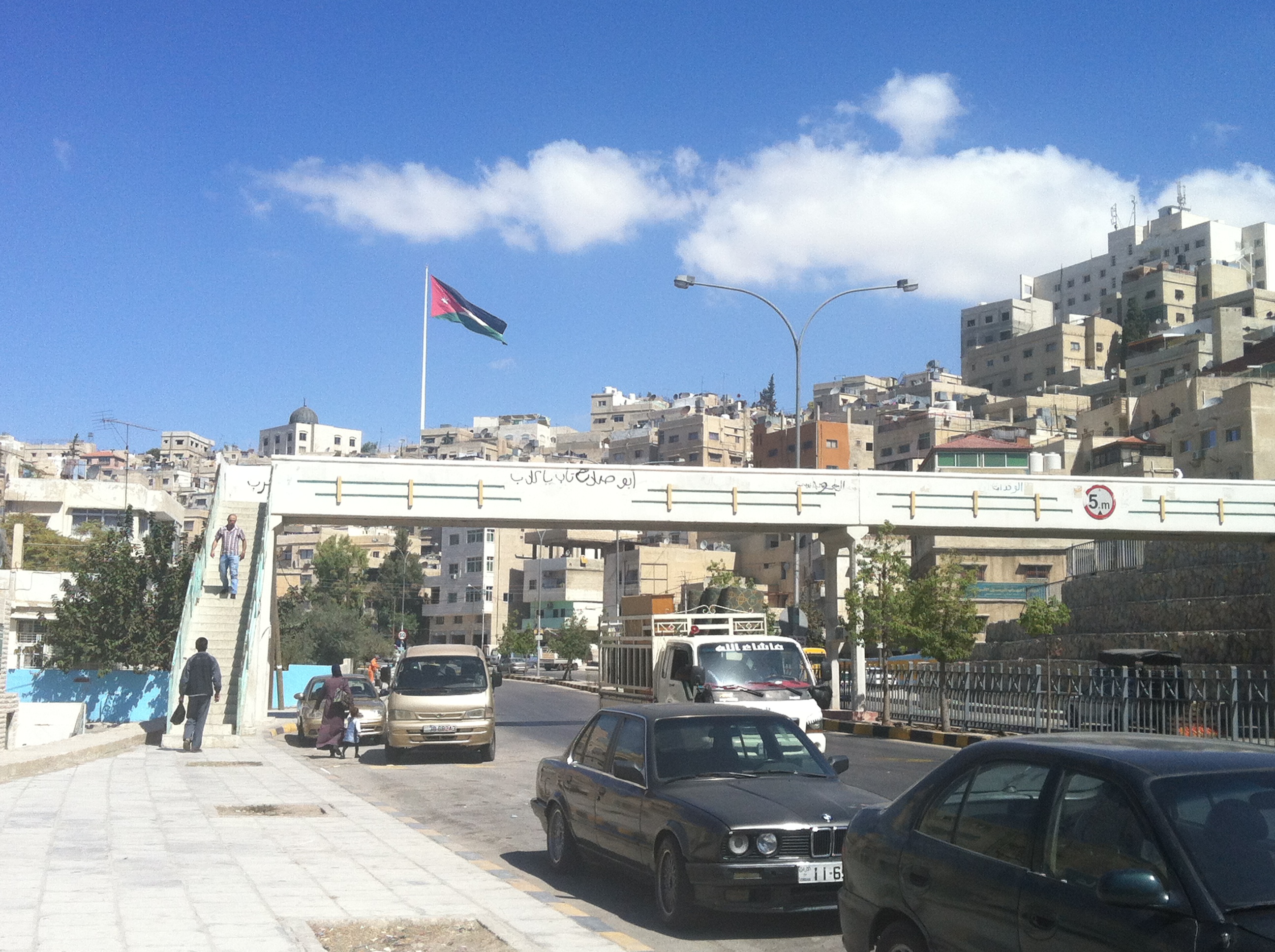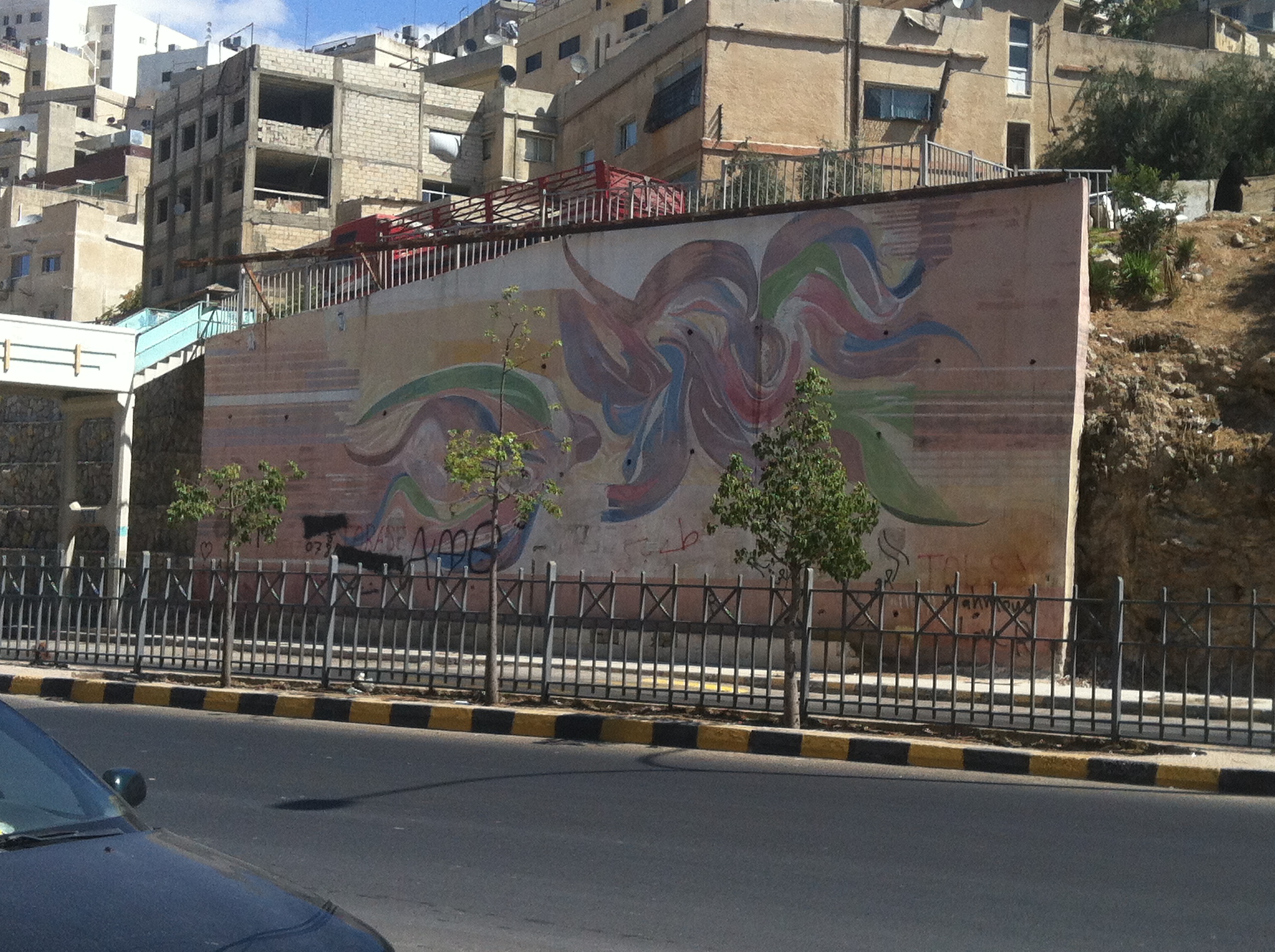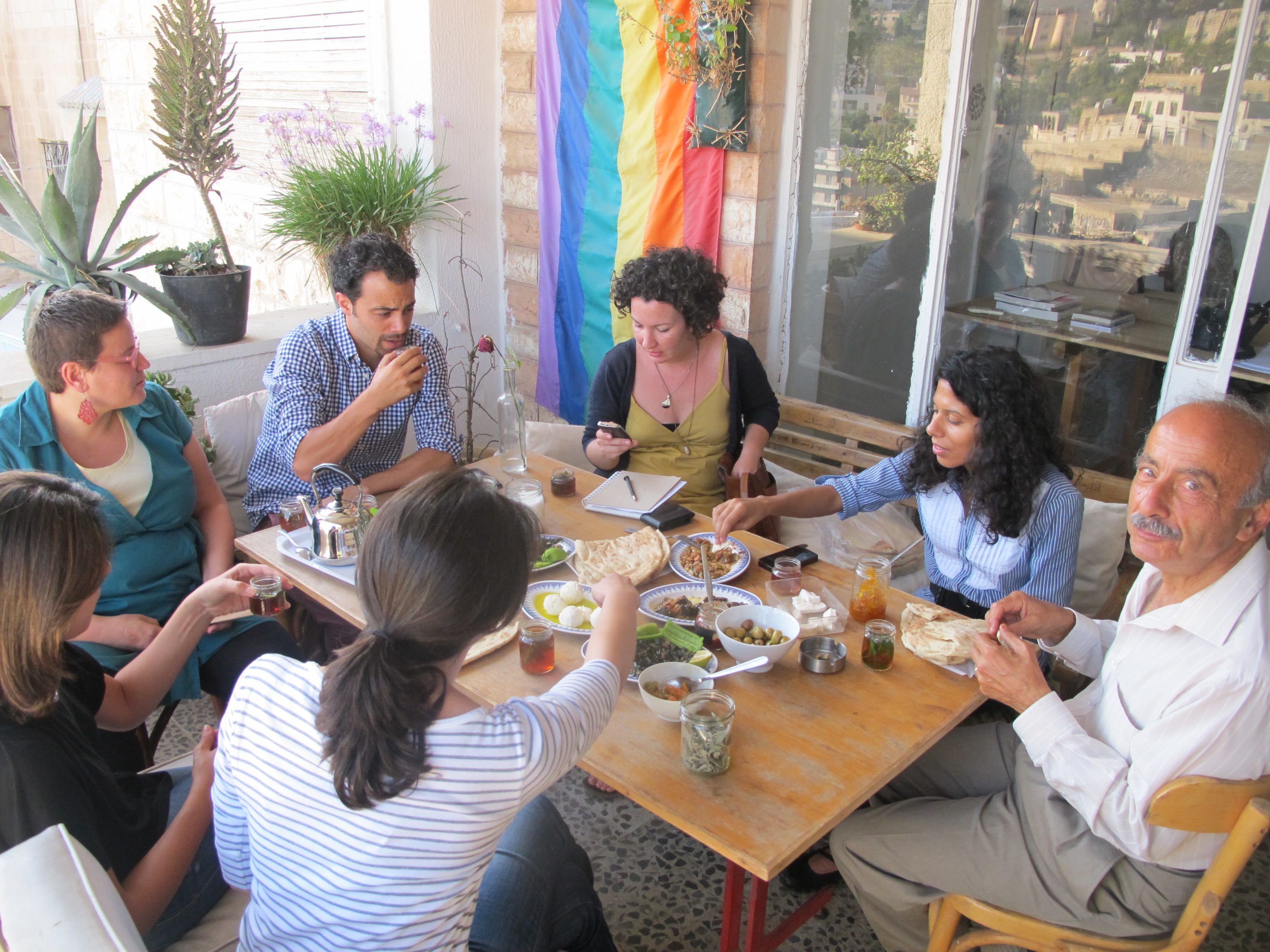تغميسة يوم الجمعة ٢/٢٨ كانت تجربة تعلم لنا، إنغمسنا فيها بكيف نرى ونتفاعل مع التنمية في حياتنا. بدأنا رحلة التعلم بجولة في مركز برية الأردن “ هدية التنمية للشعب الأردني من الشعب الأمريكي”. هذا المركز تعود إدارته للجمعية الملكية لحماية الطبيعة، مساحة لجميع أهالي المدينة ليتعرفوا على طبيعة الأردن والتنوع الحيوي فيها عن قرب ويتفاعلوا مع الموظفين ومع بعض لتترابط أرواحنا بترابنا وحياتنا. ولكن مع الأسف المركز مهدد في الوقت الحالي بالخصخصة وإعطاءه لمجموعة أتيكو/فخر الدين ليديروه كاملا “مع العلم بأنهم يديرون المطعم داخل المركز”.
بما أننا نعيش منغمسين بالحياة، فتعلُمنا يبدأ بالأسئلة والذي يقودنا الى المزيد منها “الأسئلة تُفرخ أسئلة” ورويدا رويدا تتحول الأسئلة الى فعل يحسن مجتمعنا وأيضا الى المزيد من الأسئلة والتعلم.
هل من الممكن أن نعطي لكلمة التنمية معنا آخر مرتبط بحياتنا ونخرج من دوامة وهم الكلمات من غير فعل؟ كدولة تعتمد على التمويل الخارجي بشكل كبير والقروض الناتجة عن التنمية، هل لنا الحق بمساءلة المؤسسات التي تأخذ هذه القروض وكيف يتم صرفها؟ مع برامج التنمية التي تنفذ بشكلها الحالي وما يأتي معها من تبعات مكلفة علينا جميعا، ما دورنا نحن كأفراد من التأكد من أن هذه المنح تذهب لمن يستحقها ولخدمة المجتمع بدلا من تنفيع شركات وأفراد؟ هل من الممكن أن نقوم نحن كأفراد في المجتمع من آن نمنع خطة تحول المركز الى مجرد مطعم ضمن سلسلة طويلة من المطاعم؟ هل من الممكن من أن نوصل أصواتنا كأهالي وأعضاء وأصدقاء لإستعادة المركز كمساحة للتعلم عن الطبيعة ودعم أهالي المجتمعات التي تعيش حول المحميات؟
بالتعلم والمعرفة نجد الأمل، وعندما يوجد الأمل توجد الحياة. نحثكم جميعا لمعرفة المزيد والتفاعل مع ما يحدث في الوقت الحالي والآن.
كل الشكر لجميع من حضر وتعلم معنا، كل الشكر لفريق الجمعية الملكية لحماية الطبيعة وبرية الأردن على كل الدعم والمساعدة وأيضا كل الشكر لأهل طمي للتنمية الشبابية للمشاركة وتوثيق التغميسة. تعددت التجارب والأراء ولكن خرجنا بمجموعة من الأسئلة، من أين تأتي هذه الأموال المخصصة للمشاريع التنموية؟ ما مديونة الأردن؟ ماذا لو تخيلنا المشاريع الإجتماعية والتنموية من دون تمويل خارجي؟
From Friday’s taghmeeseh, an incredible learning experience into how we experience development in our lives. Our journey began with a tour of the Wild Jordan Center, ‘a gift of development to the Jordanian people from the US American people’, managed by the Royal Society for the Conservation of Nature, the Center is intended to be a space to introduce Jordan’s beautiful wild nature and biodiversity to people in the capital, a place for learning to connect our spirits to our land and life. Today, this Center is under immediate threat of complete privatization through concession to ATICO/Fakhereldin, current operators of the Café within the Wild Jordan Center.
In living taghmees, our learning starts with questions, often leading to more questions, steadily moving towards actions that serve community, which often lead to further learning and more questions still.
Can we give development a new meaning in our lives, one that goes beyond the current illusion of words without action? As a country that is highly dependent on foreign aid and development loans, do we have a right to demand accountability from the organizations taking these funds and how they are spending them? As development comes at a high price to us all, what is our role as people in ensuring that this funding goes towards its announced purpose of serving communities rather than simply serving companies/individuals? Can we together, as people in community, stop the transformation of the Wild Jordan Center into just another restaurant on a long list of chains? Can we raise our voices as citizens, members, and friends to reclaim the Center as a space for learning about nature and supporting communities living around the reserves?
In learning we find hope, and where there is hope, there is life. We urge you to learn more and get involved. There’s no time like the present.
Our thanks to the Center team from RSCN/Wild Jordan for welcome and assistance. And thank you to Tammey for Youth Development for their support in documenting this discussion and participating wholeheartedly.
For more pictures للمزيد من الصور

